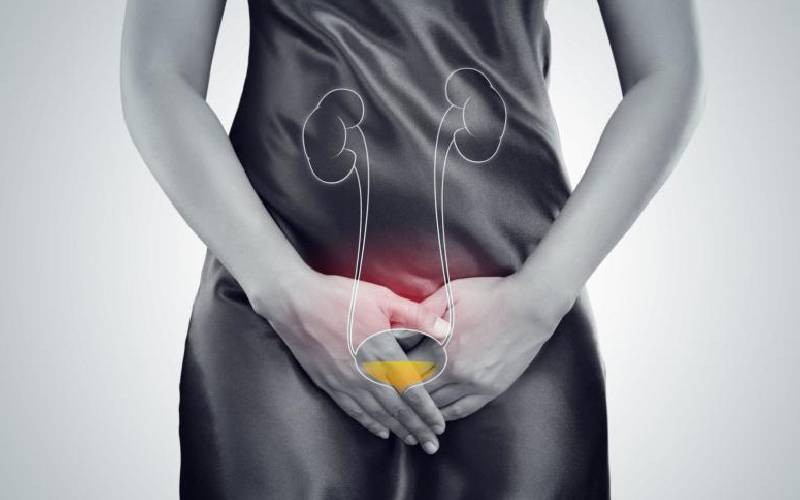
Urinary tract infections (UTIs) are normally caused by bacteria that enter the urethra and bladder which causes inflammation and infection.
The infection has misconceptions around it and many people who are diagnosed with it are afraid to talk about it openly as they think that it is a sexually transmitted infection.
Dr Stephen Mutiso, a consultant gynaecologist at Kenyatta National Hospital says that even though it is a treatable disease if left untreated, it can spread to other respiratory systems like the kidneys.
He says that, worldwide, it is estimated that one in two women will contract a UTI during their lifetimes. To be more specific, UTI incidence rates are nearly 20 per cent higher in developing countries.
"UTIs are more common in women than in men because women have shorter urethras compared to men. Secondly, the female urethra is closer to the anal region which is full of bacteria such as E. coli that is responsible for UTI," Dr Mutiso says.
He says that there are four types of UTI, vaginitis which affects the vagina, cystitis, which affects the bladder, urethritis where the urethra is affected and finally pyelonephritis which infects the kidneys.
- No evidence paracetamol in pregnancy causes autism, health bodies say after Trump's claim
- Trump's Tylenol-autism link lacks medical backing, say health experts
Keep Reading
"A person will know that he or she is infected when he starts passing urine that appears to be cloudy, red, dark coloured (like black tea) and when they feel a burning pain with a strong persistence to urinate and if they do they pass a small amount of strong-smelling urine. Women will experience pelvic pain especially in the centre of the pelvis and around the area of the pubic bone," he explains.
He further advised those with the symptoms to seek treatment because the infection can be treated.
"We do what we call a urine culture where we put urine on in a petri dish and store it at a body temperature for the next few days. A lab technician is able to look at the germs under the microscope and can tell which type of infection one has," he says.
He also noted that women can avoid getting UTIs by drinking a lot of water and emptying their bladder before and after sexual intercourse.
They should also wipe their genitals from front to back after using the toilet, and remember to urinate more often as this will help flush out bacteria from the bladder before it settles.
 The Standard Group Plc is a multi-media organization with investments in media
platforms spanning newspaper print
operations, television, radio broadcasting, digital and online services. The
Standard Group is recognized as a
leading multi-media house in Kenya with a key influence in matters of national
and international interest.
The Standard Group Plc is a multi-media organization with investments in media
platforms spanning newspaper print
operations, television, radio broadcasting, digital and online services. The
Standard Group is recognized as a
leading multi-media house in Kenya with a key influence in matters of national
and international interest.











